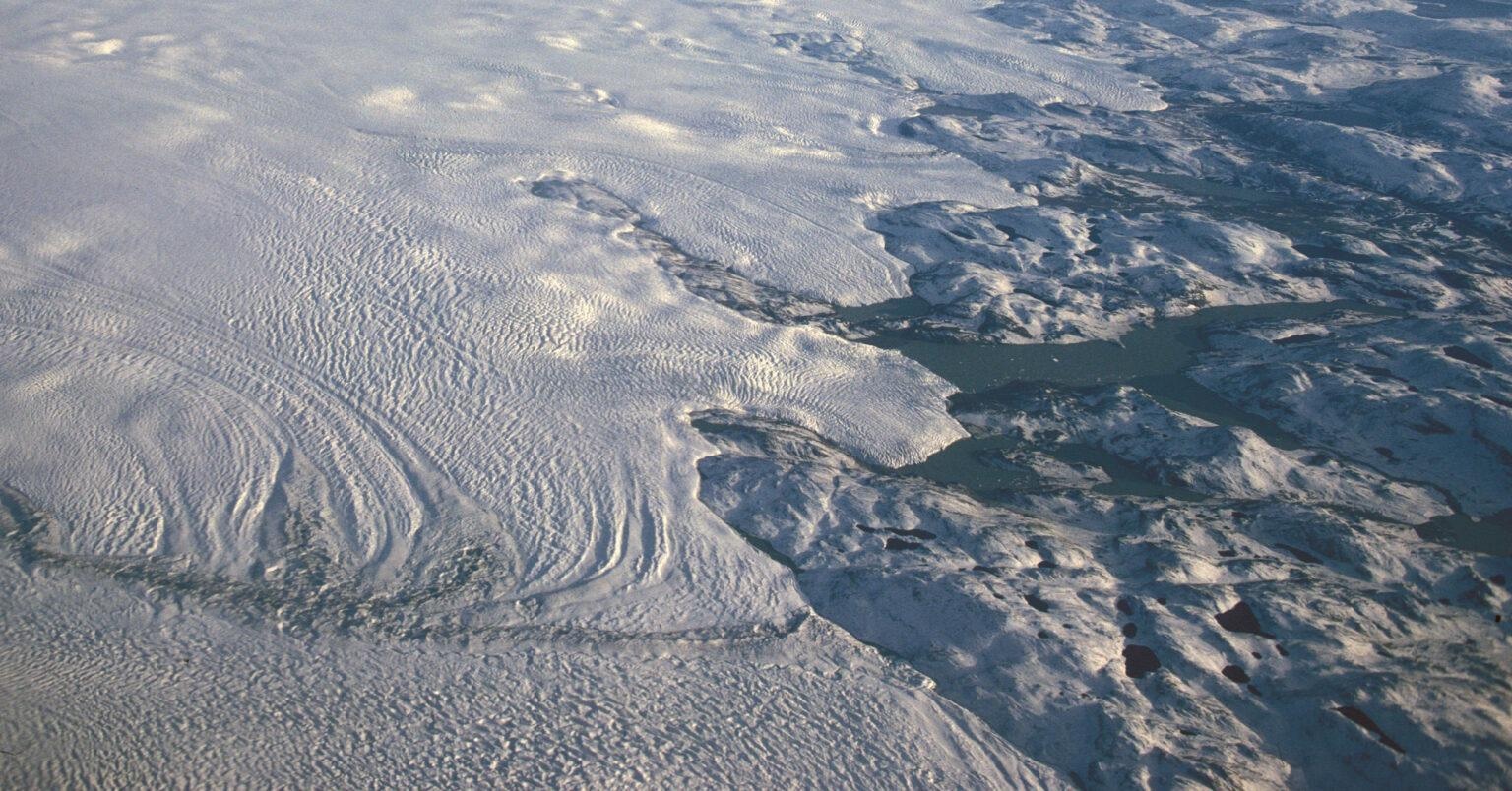Reviewed by Alex SmithApr 7 2022
Researchers at Hokkaido University Japan have explained the confusing, ten-year-old deceleration in summer warming throughout Greenland.
 Greenland ice sheet. Image Credit: Hannes Grobe.
Greenland ice sheet. Image Credit: Hannes Grobe.
The computer simulations and observational analysis performed by the scientists have disclosed that variations in sea surface temperature in the tropical Pacific Ocean, which is thousands of miles to the south, activate cooler summer temperatures across Greenland.
The findings of the study have been reported in the Communications Earth & Environment journal. This will help enhance future predictions of the Greenland ice sheet and Arctic Sea ice melting in decades to come.
The Greenland ice sheet is melting in the long run due to global warming associated with greenhouse gas emissions, but the pace of that melting has slowed in the last decade. That slowing was a mystery until our research showed it is connected to changes to the El Niño climate pattern in the Pacific.
Shinji Matsumura, Environmental Earth Scientist, Hokkaido University
El Niño is considered a natural and cyclic phenomenon that increases the water temperature in the east-central and central equatorial Pacific Ocean. Researchers are well aware that such large-scale alterations tend to change the atmospheric conditions elsewhere as a result of their connection with strong waves of air pressure known as teleconnections.
However, climate experts strained to see how the Pacific El Niño could help cool Greenland in the summer since easterly summer winds in the tropics generally avoid such teleconnections from being developed.
In the new study, the team considered recent changes that happened in the Pacific El Niño event. This was the driving force for warmer sea temperatures further north compared to usual. This took them beyond the impact of the easterly wind and enabled atmospheric teleconnections that extend to Greenland to form.
In turn, such teleconnections tend to disrupt the atmospheric conditions and hence the weather around Greenland in the summertime. They even drive more severe cyclones, which shift colder air over the land.
The new study shows that this is sufficient to describe the lower-than-anticipated temperatures and ice melting in the region. Temperatures and rates of ice sheet melting both reached the utmost in 2012.
The findings, and the slowdown in Greenland’s summertime warming, do not undermine the seriousness of climate change or the need to tackle greenhouse gas emissions.
Shinji Matsumura, Environmental Earth Scientist, Hokkaido University
Instead, they illustrate how natural changes can act beside the long-term global warming trend to alter local conditions. The slowdown in warming is considered local to Greenland. The broader Arctic region remains one of the quickest-warming places on Earth.
El Niño events tend to be tracked by similar but various natural climatic shifts known as La Niña, in which sea surface temperatures tend to drop. Such events have the potential to bring higher temperatures to Greenland.
We expect that global warming and ice sheet melting in Greenland and the rest of the Arctic will accelerate even further in the future due to the effects of anthropogenic warming.
Shinji Matsumura, Environmental Earth Scientist, Hokkaido University
Journal Reference:
Matsumura, S., et al. (2021) Slow-down in summer warming over Greenland in the past decade linked to central Pacific El Niño. Communications Earth & Environment. doi.org/10.1038/s43247-021-00329-x.